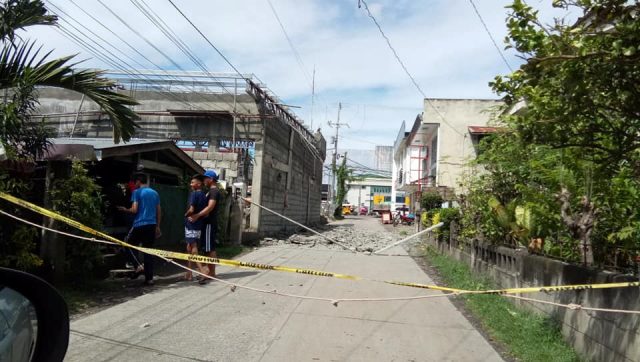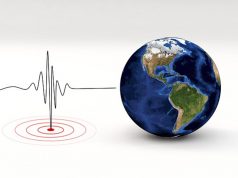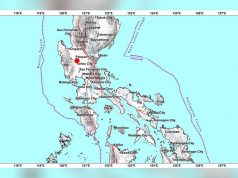
It’s not yet the second coming, but some residents, still recovering from a series of tremors that rocked Mindanao this week, thought a Caucasian male wearing a white robe seen walking around Davao City were Jesus Christ.
Based on social media posts, the unidentified barefoot man was carried a clay pot as he roamed around the city. He appeared to be asking alms from stores.
Speculations on his identity rose on October 30, the day after a 6.6-magnitude earthquake struck several parts of Mindanao, including Davao City.
Due to the timing of these events, some Filipinos actually believed he was Jesus Christ while others only described him as a lookalike.
“Now, you may find it absurd pero you can’t really blame people if they thought it is him. Earthquake and then this,” a Facebook user said.
A monk who dresses and looks like Jesus Christ was spotted at Davao after nang lindol.Now, you may find it absurd pero…
Posted by Mac Pepito on Tuesday, October 29, 2019
A Reddit user, however, alleged that he’s a foreigner dressed up as a monk who took advantage of the natural disaster to deceive Filipinos.
All I see is someone exploiting the gullibility of religious Filipinos in times of disaster (Picture is in Davao. Photo taken from FB) from Philippines
When the posts blew up across platforms, a certain Em-Em Gaco said the man in question was “a brother” from Amsai (Ananda Marga Special Academic Institution) Cabantian Campus in the city.
si brother po sya,hindi sya c JESUS
Posted by Em-Em C. Gaco on Tuesday, October 29, 2019
Another resident likewise told an online community-based news website that it was just coincidental that the monk roamed the streets when the earthquake hit.
“He’s been living as a monk. It was the first time he went outside and it was when the earthquake hit,” the resident said in Visayan language to Bohol Island News.
Other details about the foreigner such as his nationality, organization or religion are also difficult to verify.
A quick Google search suggests that the cut and style of the man’s robe resembles that of Buddhist monks.
However, Buddhist monks normally wear clothes in reddish yellow or brownish yellow colors.
False information during disasters
Disaster victims’ tendency to believe anything they see or listen to is one of the main reasons fake posts circulate when natural disasters happen, a researcher found.
David Weinberger, an internet and technology expert at Harvard’s Berkman Klein Center, tells CNN Health that people have been “trained” to assume that any reported or published information is true.
“We’ve all been trained to assume that what we see published must have gone through some set of filters and authentication,” Weinberger said.
“You used to watch the news on TV and you were confident it had been vetted or whatever. It was not your responsibility to fact-check the news. Simply being published was a mark of authority,” he added.
It could also be a form of coping mechanism to horrible events, Weinberger noted. Believe in something also brings with it a sense of comfort.
“You are always going to believe that which makes sense to you. And when there’s very little information, it is much easier to throw out ideas that seem plausible,” he said.
False earthquake warnings and weather reports have also been found circulating in the Philippines in recent years.
The Philippine Institute of Volcanology and Seismology, the Office of Civil Defense and the National Disaster Risk Reduction and Management Council previously reminded the public that they should only believe announcements coming from and similar government agencies.
Deadly earthquakes in Mindanao
Communities in Mindanao faced two strong earthquakes in a span of a week, a magnitude 6.6 quake on October 29 and another 6.5 magnitude tremor last October 31.
The epicenter of both earthquakes were reportedly found in the province of North Cotabato.
The first one was recorded at the municipality of Tulunan wherein over 8,000 people were displaced.
The latest one was at Kidapawan City where a part of a hotel there collapsed.
Authorities have yet assessed the damages and the affected residents the disaster left.









